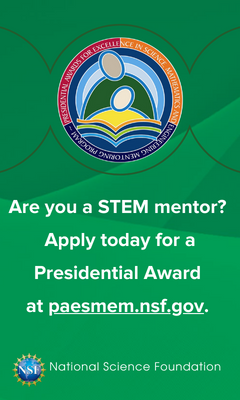In 2003, Shirley Malcom, Ph.D., received the Public Welfare Medal from the National Academy of Sciences (NAS). She was honored for her 'vision, dedication, and effectiveness in bringing science education to children in the U.S. and create a science-literate populace. The academy credited Malcom with making 'an important contribution to empowering many young people with the skills of a scientist.'

The NAS medal is presented annually to honor the extraordinary use of science for the public good. Recent recipients include John P. Holdren (2022), the longest-serving presidential science advisor to date; Anthony S. Fauci (2021), for leadership in combatting emerging infectious diseases; and Kathleen Hall Jamieson (2020), for ensuring the integrity of facts in public discourse and the development of the science of scientific communication to promote public understanding of complex issues.
Growing up in Birmingham, Alabama, during the 1950s and 1960s, Shirley Malcom witnessed the lack of opportunities for minorities to achieve in science. After graduating with a bachelor's degree in zoology from the University of Washington, Seattle, where she was the only Black woman in her science classes, Malcom went on to become a high school teacher and then a college professor, before moving to the nation's capital to work as a research assistant at the American Association for the Advancement of Science (AAAS).
There she was charged with taking an inventory of the nation's education programs in science for minority students, a task that brought home the magnitude of the problem faced by racial and ethnic minorities. Science education programs often excluded minorities, she found, and those that were set up to serve minorities favored men.
Currently, Dr. Malcom is a senior advisor to the CEO and director of the SEA Change initiative at AAAS. According to the website, the mission of AAAS STEMM Equity Achievement (SEA) Change is to support the transformation of science, technology, engineering, mathematics, and medicine (STEMM) in colleges and universities.
She also works to improve the quality and increase access to education and careers in science, technology, engineering, and math (STEM) fields, as well as to enhance public science literacy as a trustee of Caltech, a regent of Morgan State University, and a member of the SUNY Research Council.
A former member of the National Science Board, the policymaking body of the National Science Foundation (NSF), Dr. Malcom served on President W.J. Clinton’s Committee of Advisors on Science and Technology. More recently, she has served on the boards of the Heinz Endowments, Public Agenda, the National Math-Science Initiative, and Digital Promise, which works at the intersection of education and technology to improve learning opportunities for all and close the digital learning gap.
Dr. Malcom is a leader in efforts to improve access to science and engineering and increase the use of science and technology (S&T) to empower women and address problems they face in their daily lives. She is a co-chair of the Gender Advisory Board of the United Nations Commission on S&T for Development and Gender, a global campaign to deploy S&T to help improve the lives and status of girls and women worldwide.

